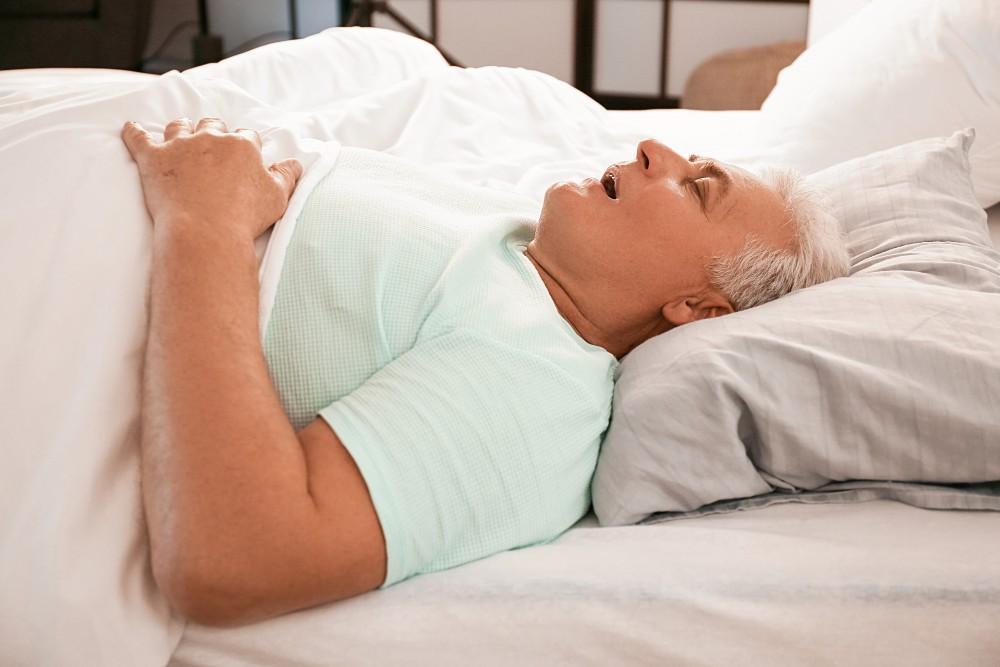Introduction
Sleep is essential for overall health, but when it’s interrupted by breathing problems, it can have serious consequences—especially for the heart. Sleep apnea, a common and often undiagnosed sleep disorder, does more than just cause fatigue. Research has clearly shown a strong link between sleep apnea and heart disease, including high blood pressure, arrhythmias, heart failure, stroke, and even sudden cardiac death.
Understanding this connection is vital for early diagnosis and treatment, potentially reducing the risk of life-threatening cardiovascular complications.
1. What is Sleep Apnea?
Sleep apnea is a condition where breathing repeatedly stops and starts during sleep. There are two main types:
- Obstructive Sleep Apnea (OSA): The most common form. Caused by relaxation of throat muscles, leading to airway blockage.
- Central Sleep Apnea (CSA): Less common. Caused by the brain failing to signal the muscles to breathe.
- Mixed Sleep Apnea: A combination of both.
Symptoms of Sleep Apnea
- Loud snoring
- Gasping or choking during sleep
- Excessive daytime sleepiness
- Morning headaches
- Poor concentration or memory
- Mood changes or depression
2. How Sleep Apnea Affects the Heart
Sleep apnea doesn’t just disrupt rest—it triggers physiological stress on the cardiovascular system. Here’s how:
Oxygen Deprivation (Intermittent Hypoxia)
Each apnea episode leads to a drop in oxygen levels, which stresses the heart and blood vessels. Over time, this damages the vascular system and contributes to inflammation.
Surges in Blood Pressure
Every time breathing stops, the brain triggers a stress response, increasing sympathetic nervous system activity, which causes spikes in blood pressure and heart rate.
Inflammation and Oxidative Stress
Ongoing sleep disruption and oxygen deprivation lead to chronic inflammation and oxidative stress, both of which contribute to plaque buildup in arteries (atherosclerosis).
Changes in Intrathoracic Pressure
During apnea, negative pressure builds in the chest, increasing the heart’s workload, especially the left ventricle.
3. Heart Conditions Linked to Sleep Apnea
High Blood Pressure (Hypertension)
Sleep apnea is a major cause of secondary hypertension, especially resistant hypertension that doesn’t respond well to medication.
Coronary Artery Disease (CAD)
OSA increases the risk of plaque buildup in the arteries, narrowing them and reducing blood flow to the heart, raising the risk of heart attacks.
Arrhythmias
Sleep apnea is strongly linked to atrial fibrillation (AFib) and other rhythm disturbances due to frequent drops in oxygen and pressure changes.
Heart Failure
The strain caused by untreated OSA can lead to heart muscle weakening, especially in the left ventricle. In patients with existing heart failure, sleep apnea worsens outcomes.
Stroke
Sleep apnea doubles the risk of stroke, likely due to its effects on blood pressure, blood flow, and increased clotting risk.
Sudden Cardiac Death
OSA is associated with a higher risk of sudden death during sleep, particularly in individuals with severe, untreated apnea.
4. Diagnosing Sleep Apnea in Cardiac Patients
Because symptoms may be subtle, especially in heart patients, sleep apnea often goes undiagnosed. If you have a cardiovascular condition and experience fatigue or sleep issues, screening is crucial.
Common Tests:
- Sleep Study (Polysomnography): Gold standard test done in a sleep lab.
- Home Sleep Apnea Testing (HSAT): Simplified version for at-home use.
- Apnea-Hypopnea Index (AHI): Measures the number of apneas per hour.
- Mild: 5–14
- Moderate: 15–29
- Severe: 30 or more
5. Treatment Options and Cardiovascular Benefits
Continuous Positive Airway Pressure (CPAP)
- Most effective treatment for OSA.
- Delivers air pressure to keep airways open during sleep.
- Proven to lower blood pressure, improve AFib outcomes, and reduce heart failure symptoms.
Oral Appliances
- Custom-fitted mouthguards that reposition the jaw.
- Useful in mild-to-moderate OSA or for those intolerant to CPAP.
Lifestyle Changes
- Weight loss: Even modest weight loss can improve apnea severity.
- Avoid alcohol and sedatives: These relax the airway muscles further.
- Sleep position: Sleeping on your side may reduce apnea episodes.
Surgery (in select cases)
- For anatomical issues or severe cases where other treatments fail.
6. Preventing Heart Disease by Treating Sleep Apnea
Addressing sleep apnea can significantly improve cardiovascular outcomes:
- Improves blood pressure control
- Reduces recurrence of arrhythmias
- Lowers stroke risk
- Enhances quality of life and energy levels
- May improve insulin sensitivity and reduce the risk of diabetes
Conclusion
Sleep apnea is far more than just a sleep disorder—it’s a serious health condition with deep ties to heart disease. Left untreated, it can fuel hypertension, worsen heart failure, trigger arrhythmias, and increase the risk of stroke and sudden death.
The good news? Sleep apnea is highly treatable, and early diagnosis can dramatically improve both sleep and heart health. If you or a loved one snores, struggles with fatigue, or has existing heart disease, talk to a doctor about getting screened. Your heart—and your life—may depend on it.
FAQs:
Can sleep apnea affect my heart?
Yes. Sleep apnea increases the risk of high blood pressure, heart attacks, arrhythmias, stroke, and heart failure.
What’s the most common heart problem linked to sleep apnea?
High blood pressure and atrial fibrillation (AFib) are commonly associated with untreated sleep apnea.
How does sleep apnea harm the heart?
Repeated oxygen drops during sleep strain the heart, cause inflammation, and raise blood pressure and stress hormones.
Can treating sleep apnea improve heart health?
Absolutely. Using a CPAP machine or other treatments can lower blood pressure, reduce arrhythmias, and improve heart function.
How do I know if I have sleep apnea?
Common signs include loud snoring, gasping during sleep, daytime sleepiness, and morning headaches. A sleep study confirms the diagnosis.






